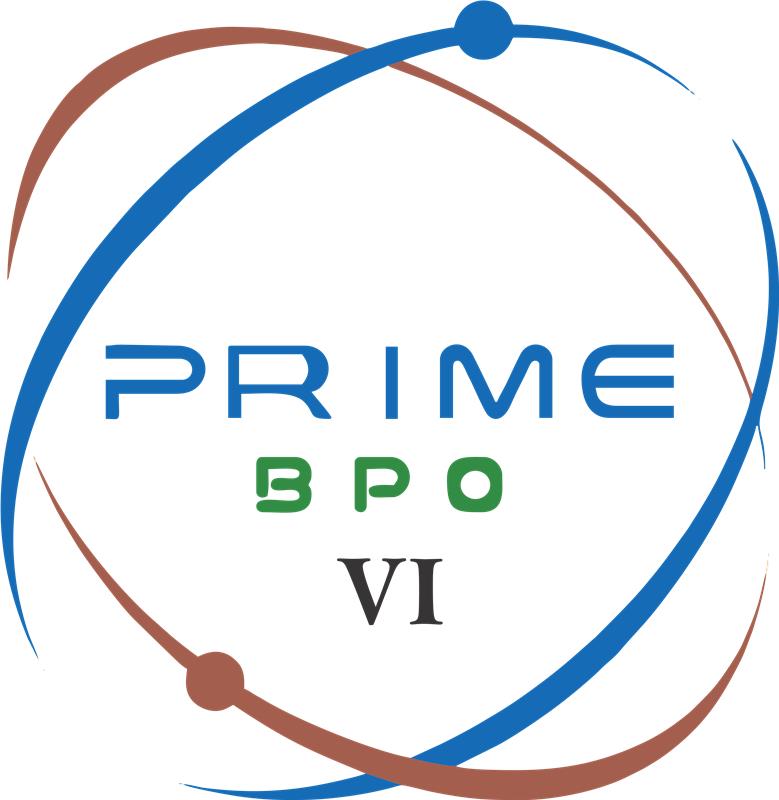The customer service industry has evolved remarkably over the past few decades, leading to the emergence of two distinct but often confused entities: Call Centers and Contact Centers. Both are important in customer support but differ significantly in their approach, technology, and overall impact on customer experience. If you’re in a rush, we compiled a quick cheat sheet showing Contact Center vs. Call Center. Let’s start to check which one is the best platform. Stay with us till the end!
What Is a Call Center?
A Call Center is a centralized office that receives or transmits a large volume of requests by telephone. It primarily focuses on voice calls as the medium of communication. Historically, call centers have been the backbone of customer service for many businesses, handling everything from customer inquiries to support, telemarketing, and debt collection.
Get Free Quotes
Customized Options Await
Functions of a Call Center
Customer Service: Call centers provide immediate customer support, addressing inquiries and resolving issues to ensure customer satisfaction.
Technical Support: Specialized agents offer assistance for technical products and services, helping customers with troubleshooting and usage.
Sales and Telemarketing: They engage in proactive sales initiatives, including product promotion and outbound sales calls, to generate leads and drive revenue.
Appointment Setting: Responsible for scheduling and managing appointments for various service industries, ensuring efficient time management for providers and clients.
Information Dissemination: As a channel for communicating important announcements, updates, and information to customers.
Feedback Collection: Call centers conduct surveys and gather feedback to help businesses understand customer needs and improve their products or services.
What is a Contact Center?
A Contact Center, often synonymous with a Call Center, is a centralized office that receives or transmits a large volume of requests by telephone. It's integral to many businesses, serving as a customer interaction and support hub. Unlike traditional call centers that solely handle phone calls, modern contact centers are multifaceted, often including email, social media, live chat, and video conferencing as additional communication channels.
This multichannel approach allows businesses to engage with customers through their preferred means of communication, enhancing customer service and experience. They use various technologies like Interactive Voice Response (IVR), automatic call distribution, and computer telephony integration to streamline operations.
In essence Contact Center vs. Call Center, a contact center acts as the nerve center of customer interaction for a business, which is critical in maintaining customer satisfaction and loyalty.
Functions of a Contact Center
Omnichannel Customer Support: Contact centers handle customer interactions across multiple platforms, including phone, email, social media, and chat.
Customer Relationship Management: They focus on building and maintaining customer relationships, offering personalized interactions and solutions.
Social Media Engagement: Monitoring and responding to customer queries and discussions on social media platforms.
Real-Time Communication: Offering live chat support for instant assistance, enhancing customer experience and engagement.
Data Analytics and Reporting: Utilizing advanced tools to analyze customer interactions, gaining insights to drive business decisions and strategies.
Virtual Assistance and AI Integration: Implementing chatbots and AI-driven tools for efficient, automated customer service.
Difference Between Contact Center vs. Call Center
To make an informed choice between a contact center vs. call center, one must understand their key differences. Here are a few of them:
1- Channels:
Call Centers: Customers typically interact with them only via phone calls, limiting communication to voice calls.
Contact Centers: Provide customers with more options for communicating with the organization, including phone, email, chat, and social media.
2- Data Collection:
Call Centers: Due to the single communication channel, customers' data is primarily gathered through phone conversations.
Contact Centers: Increase customer data collection through multiple channels and tailor personalized support based on individual preferences.
3- Customer Self-Service (CSS):
Call Centers: Self-service options for basic needs can be provided through interactive voice response (IVR) systems, which provide lengthy menus and limited functionality, which may frustrate customers.
Contact Centers: Provide customers with a wider range of self-service options, including chatbots, FAQs, and mobile apps, so they can find answers independently and their agents' workload is reduced.
4- Agent Skills:
Call Center Agents: Communicate effectively over the telephone with customers and solve customer problems.
Contact Center Agents: Multitasking and written communication skills are required to effectively handle varying levels of complexity in communication channels and interactions.
5- Professionalism and Brand Image:
Call Centers: To maintain the company's brand image, it is important to maintain professionalism throughout phone interactions.
Contact Centers: Assist agents in communicating professionally in writing as well as on social media to ensure the brand image of the organization is positively reflected in all interactions with customers.
Contact Center vs. Call Center Similarities
While contact center vs. call center differ in several fundamental ways, they are fundamentally similar in several ways:
Voice Support
Whether it's call centers or contact centers, both provide voice support. Voice remains a critical component for customer interactions in both contact centers and call centers, despite additional channels such as web chat and social media.
Comprehensive Reporting
Reporting and analytics capabilities are available in both centers. The data can be analyzed to improve customer service and optimize operations by analyzing customer interactions, call data, and trends.
Cloud-Based Solutions
Cloud-based solutions can be used to deploy both call centers and contact centers. Businesses can manage customer interactions efficiently and adapt to changing needs by deploying cloud applications. Cloud deployment offers flexibility, scalability, and accessibility.
Omnichannel Support
An omnichannel approach is offered by contact centers, in contrast, to call centers that are primarily focused on voice interactions. Although both companies aim for seamless customer experiences across multiple channels, including voice, email, chat, and social media, they have some key differences.
Integration with CRM
To streamline customer interactions and improve efficiency, both centers integrate with Customer Relationship Management (CRM) systems. Customers can access information and history about them via this integration, providing them with a more personalized service and improving their overall experience.
Comparison of Contact Center vs. Call Center
Here is a tabular comparison of contact center vs. call center:
Get Free Quotes
Customized Options Await
|
Aspect |
Call Center |
Contact Center |
|
Primary Focus |
Outbound and inbound call handling. |
Communicate in various ways (calls, emails, chat, social media). |
|
Channels |
Voice calls are the main focus. |
Communicates through multiple channels (voice, email, chat, social media). |
|
Scope |
Generally limited to customer support and service. |
Supporting customers, sales, and technical issues. |
|
Technology |
Traditional phone systems are often used. |
Provides omnichannel support using advanced technologies. |
|
Interaction |
Calls are mostly handled reactively, as they are received. |
Approaching customers through various channels with a proactive approach. |
|
Agent Skills |
A strong verbal communication skill is essential. |
Handling multiple channels requires diverse skills. |
|
Customer Focus |
Resolving immediate issues is the primary focus. |
Builds long-term relationships with customers. |
|
Metrics |
Typical metrics include Average Handling Time (AHT). |
Provides metrics for several channels (e.g., response time and resolution time). |
|
Example |
Technical support is requested by a customer of a telecommunications company. |
Visiting a website for product information leads to a customer initiating a chat. |
The Evolution from Call Centers to Contact Call Centers
The evolution from traditional call centers to modern contact call centers represents a significant shift in how businesses approach customer communication and service. Initially, call centers focused primarily on voice-based interactions, handling customer queries and support through telephone calls.
Get Free Quotes
Customized Options Await
However, with the advent of digital technology and changing consumer preferences, these centers have transformed into multichannel contact centers. This transition embodies the integration of various communication platforms such as email, social media, live chat, and even video calls, offering a more holistic and flexible customer service experience. Contact telecommunication centers utilize advanced technologies like AI, machine learning, and data analytics to provide personalized and efficient service.
This evolution reflects a broader trend towards omnichannel customer engagement, where the focus is not just on responding to customer needs but proactively enhancing the overall customer journey across multiple touchpoints. Consequently, this shift has enabled businesses to meet their customers where they are, delivering a more seamless, efficient, and satisfying interaction experience.
Who should use call center services?
After understanding what is a call center? Let’s explore more about it. Call center services have long been integral to modern business operations, offering specialized communication solutions that cater to specific needs and industries. Ideally suited for companies experiencing high customer interactions, these services are essential for maintaining efficient, professional, and responsive communication channels.
Call center services offer a tailored solution, whether it's a burgeoning startup, a mid-sized business facing a surge in customer queries, or a large corporation aiming to streamline its customer support. Here's a detailed look at who should consider using call center services:
Customer-Centric Businesses:
Customer-centric businesses place the satisfaction and experience of their customers at the heart of every decision and strategy. This approach prioritizes understanding and meeting customers' unique needs, fostering loyalty and driving long-term business success. These services enable organizations to handle high customer inquiries, ensuring that customers receive prompt and efficient assistance.
Telemarketing and Sales:
Call centers are an excellent choice for businesses engaged in telemarketing campaigns and sales outreach. Experienced call center agents can effectively reach potential customers, generate leads, and convert prospects into clients.
Appointment Setting:
Industries such as healthcare, professional services, and home improvement rely on call centers for appointment scheduling and reminders. Call center agents ensure that appointments are booked efficiently and that clients are reminded of their upcoming appointments.
Technical Support:
Technology and IT sector companies often require call center services to provide technical support for their products or services. Call centers diagnose and resolve technical issues, enhancing customer satisfaction and product reliability.
Emergency Response and Crisis Hotlines:
Call center hotline provides an immediate and reliable point of contact for individuals needing assistance. It can quickly assess a caller's situation, provide critical information or guidance, and dispatch emergency services if necessary.
The efficiency and effectiveness of these call centers hotlines are bolstered by advanced technology, such as automatic call distribution and location tracking, ensuring that calls are handled swiftly and responders are promptly directed to where they are needed most.
Who should use contact center services?
Contact call center services are a vital resource for many organizations and businesses seeking to streamline their customer communication processes and enhance overall customer satisfaction. Here's a closer look at who should consider using contact center services:
Retail and E-Commerce:
These sectors constantly face orders, returns, and product information inquiries. The contact centers efficiently manage these interactions, improving customer satisfaction and retention.
Telecommunications:
With frequent service upgrades, billing inquiries, and technical support needs, telecom companies benefit immensely from these contact centers that provide dedicated customer support.
Healthcare:
Hospitals, clinics, and insurance companies use contact centers for appointment scheduling, patient inquiries, and emergency responses, ensuring timely and sensitive communication.
Banking and Finance:
For handling account inquiries, transaction support, and financial advice, these centers in the financial sector play a crucial role in customer service and regulatory compliance.
Startups and Small Businesses:
Emerging businesses use contact centers to establish a professional customer service presence without the overhead of an in-house team, allowing them to scale as needed.
Government Agencies:
Contact centers support public services like health information lines, helpdesks for civic issues, and emergency response coordination.
Contact Center vs. Call Center: Which Platform Is Best?
Your organization's goals, preference for customer communication, and budget will determine your choice for Contact Center vs. Call Center. However, here are a few things to consider:
Communication Channels
It would be more appropriate for your business to use a contact center to communicate with your customers via voice calls, email, chat, and social media. A call center, however, might work well if you focus primarily on voice calls.
Customer Experience
Having a better-equipped contact center enables it to provide seamless and personalized service across a variety of channels, leading to a higher level of customer satisfaction. However, call centers may not be able to provide a holistic customer experience.
Scalability
As new communication channels and agents are added, contact centers can become more scalable than traditional call centers. Customers' inquiries may fluctuate during seasonality or growth, so this scalability benefits businesses.
Technology
A call center that uses more advanced technology, such as omnichannel communication platforms and customer relationship management systems (CRM), is more likely to be efficient and productive than one that relies more on traditional telephone systems.
Cost
Businesses with only basic voice communication needs may find call centers more cost-effective. Meanwhile, the costs of contact centers may be higher initially, but they are often worth it on a long-term basis, especially for businesses that aim to deliver exceptional customer service.
You should align your organization's specific goals and needs with the choice of Contact Center or Call Center. Providing comprehensive, flexible, and future-proof customer support is a major reason why modern businesses use contact centers. When your organization's communication is largely based on voice calls and you have budget constraints, a call center can still be a good option.
No doubt, the "best" platform for your Contact Center vs. Call Center depends on your unique circumstances. But you can also check the Prime BPO call center that offers the best telecommunication services for all business users.
Conclusion
Understanding the difference between Contact Center vs. Call Center is crucial for businesses aiming to provide exceptional customer service. While call centers effectively handle large volumes of calls, contact centers offer a more holistic approach to customer communication and relationship management. The choice between the two should align with a company's specific customer service goals and preferences.
In today's digital age, where customer experience is paramount, many businesses are transitioning towards contact centers to meet their customers' evolving expectations. This shift reflects a change in technology and a broader business strategy focus on customer-centricity and personalized service.
Frequently Asked Questions (FAQs)
1. What is the difference between a contact center vs. call center?
A call center primarily handles voice-based communications such as phone calls, while a contact center encompasses a broader range of communication channels including phone calls, emails, chats, social media, and more.
2. What is an example of a contact center?
An example of a contact center is a customer service department that provides support through multiple channels like phone calls, emails, and live chats. Companies like Amazon, Apple, and Microsoft often operate contact centers to handle customer inquiries and support requests.
3. What is a contact center agent?
A contact center agent is an individual responsible for handling customer interactions across various communication channels within a contact center. They address customer inquiries, provide assistance, resolve issues, and ensure a positive customer experience.
4. What is the highest position in a call center?
The highest position in a call center is typically the Call Center Manager or Director, who oversees the overall operations, sets strategic goals, manages staff, and ensures that performance targets are met. In larger organizations, there may be additional executive-level positions such as Vice President of Customer Experience or Chief Customer Officer.






